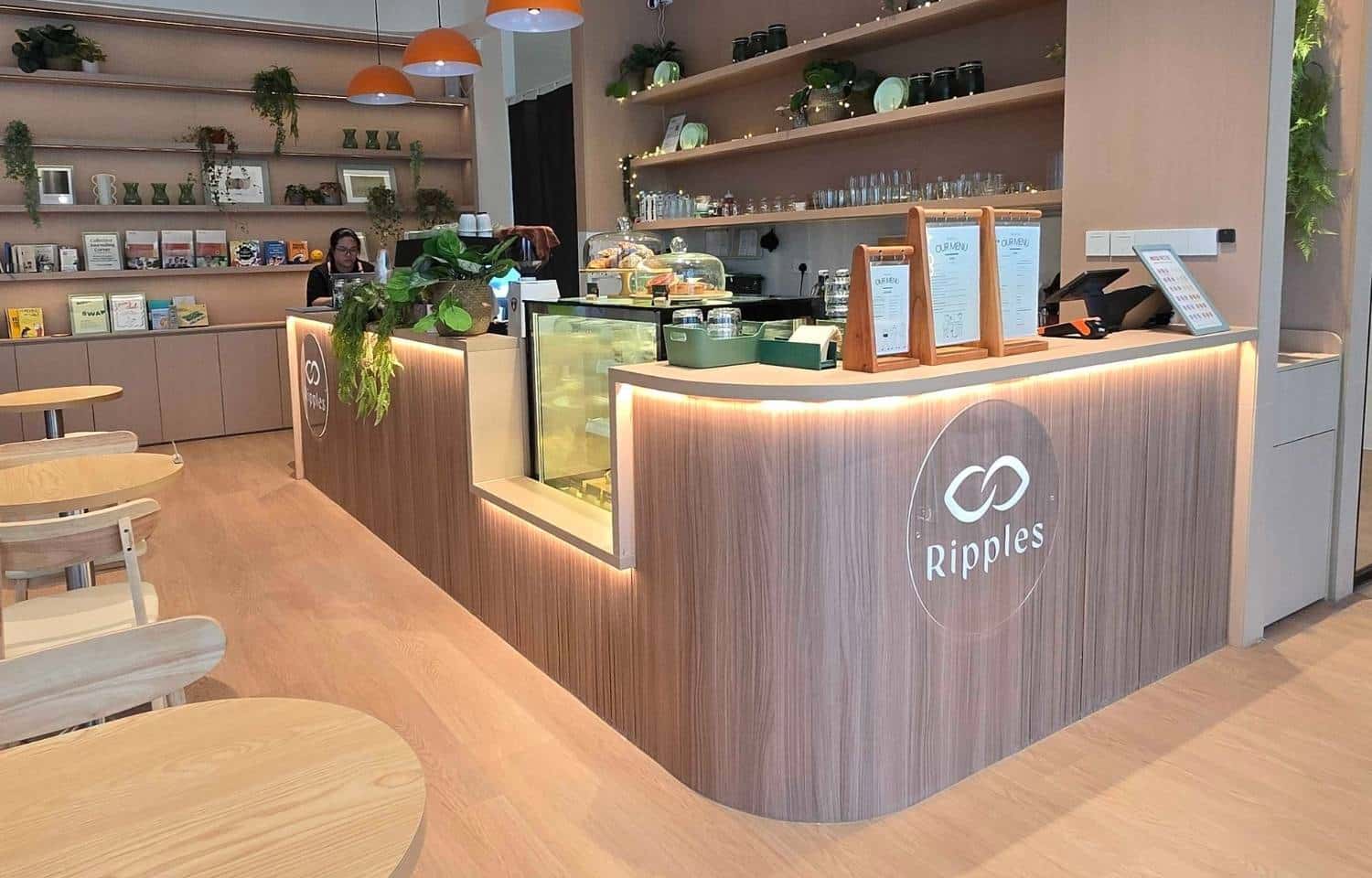As mental health becomes a growing priority across workplaces, schools, and communities, more adults are turning to psychology courses to deepen their understanding of human behaviour, and to support others in practical, meaningful ways.
Yet, many soon discover that understanding theories are only one part of the journey.
Knowing why people think, feel, or act a certain way doesn’t automatically translate into being able to support them, inspire change, or even navigate one’s own challenges with greater clarity.
To make a real impact, whether in a therapy room, classroom, workplace, or everyday life, learners need more than just academic knowledge.
They need hands-on practice, guided reflection, and opportunities to build the confidence and competence that come from lived experience.
In this article, we explore why theory alone isn’t enough, and unpack what “practice-based learning” means. Along the way, you’ll hear from learners who’ve experienced this journey firsthand, applying psychological tools not just in theory, but in therapy rooms, classrooms, and corporate settings alike.
Table of Contents
Why Theory Alone Isn't Enough
The National Training Laboratories’ Learning Pyramid model suggests that learners retain only 5% of what they hear in lectures, compared to up to 75% of what they practise by doing.
After all, books and AI can teach you about trauma, empathy, and motivation. But they can’t teach you how to sit across from someone in pain and really listen. They can’t simulate the courage it takes to ask a difficult question, or the sensitivity needed to hold space for someone else’s story.
Without practice, psychological knowledge remains abstract. You might understand the principles of cognitive behavioural therapy (CBT), or the importance of wellbeing at work, but unless you’ve experienced these in action through roleplays, reflective exercises, or supervised sessions, you won’t have the confidence or competence to use them effectively.
Example 1: Becoming a psychotherapist isn’t just about theory
You might learn that CBT helps people identify and reframe unhelpful thoughts, like turning “I’m a failure” into “This is a chance to grow.” But knowing the technique isn’t the same as guiding someone through it. In a live session, a client may resist reframing because their emotions feel overwhelming or their beliefs are deeply rooted.
Thus, practising CBT techniques step-by-step in a classroom setting prepares students for this reality. They don’t just learn the theory behind cognitive distortions, they practise how to recognise them in real conversations, respond with empathy, and apply techniques like Socratic questioning in a way that is both structured and human.
Example 2: Why corporate leaders need practice before effecting change
A corporate leader may know that reframing challenges is a key strategy to building resilience in their teams. But how can they communicate their intentions without seeming dismissive of their team’s stress or struggles?
Without the opportunity to practise and receive feedback, even the best intentions can come across as insincere. Practice-based learning in classrooms provides the opportunity to gain subtle, human skills that can’t be mastered through theory alone. They require time, feedback, and lived experience.
The Power of Practice-Based Learning
Practice-based learning in the context of psychology education means that theories are integrated into lived experience. Instead of just reading about techniques, learners participate in structured activities – such as roleplays, supervised sessions, and reflective exercises – that allow them to try these tools in more realistic settings.
Educational research consistently shows that learning retention and real-world readiness increase significantly when learners experience rather than merely observe. Studies have shown that students who engage in active learning techniques like peer teaching, case-based learning, and simulations, demonstrate significantly higher levels of understanding, confidence, and long-term retention (Freeman et al., 2014; Kolb, 1984).
At The School of Positive Psychology, our learners don’t just study psychology; they live it, test it, and refine it through reflective exercises, peer conversations, and real-world applications.
Graduates are supported in becoming academically equipped, but also emotionally attuned and practically prepared to support others meaningfully.
Here are some of the ways that practice-based learning is brought alive in our Graduate Diploma programmes:
Socratic Dialogue
One key learning from coaching psychology is understanding why people tend to hold themselves back and engage in self-sabotaging behaviours. A practice-based learning activity could look like pair-work, with learners discussing questions like “What is one belief you carry about yourself that shows up when you’re about to try something new?” They might then be asked to explore, “If someone else held the same belief about themselves, what would you tell them? How would you challenge the assumption?” This Socratic dialogue enables students to practise reframing self-limiting beliefs into more empowering perspectives.
Role-Play
In modules exploring active listening and therapeutic presence, students participate in structured role-plays where they take turns acting as counsellor, client, and observer. One student may express a personal challenge, while another practises techniques like empathetic reflection or open-ended questioning. The observer offers feedback on non-verbal cues and tone, helping all participants build attunement, awareness, and self-confidence.
Case Studies
Instead of learning abstractly about wellbeing interventions, students analyse real-world scenarios from schools, workplaces, or community settings. They discuss what strengths-based strategies could be applied, what contextual challenges might arise, and how outcomes might be measured. These case studies deepen the understanding of positive psychology tools in action, preparing learners for application beyond the classroom.
Community-Based Projects
Many students are encouraged to undertake mini-projects in their own spheres of influence, be it in schools, workplaces, or volunteer groups. For example, a student in the resilience module may design and facilitate a wellbeing workshop for their colleagues, then reflect on what worked, what didn’t, and how the theory came to life. These experiences bridge the gap between academic concepts and social impact.
Fishbowl Discussions
To develop skills in presence and group facilitation, students engage in fishbowl discussions, a method where a small group discusses a topic while the rest observe silently. Roles rotate, allowing each participant to practise active listening, thoughtful contribution, and group dynamics awareness. This format builds confidence in leading conversations, holding space, and engaging diverse perspectives.
Beyond the Classroom: Practice-Based Learning in Action
What began as a simple plan to use SkillsFuture credits for personal upgrading unexpectedly turned into a life-changing journey of growth and transformation for Jenniffer Lim, one of our students who undertook the Graduate Diploma in Applied Positive Psychology and Wellbeing (GDAPPW).
In class, she discovered the science behind character strengths and why recognising them, both in ourselves and others, is key to flourishing. Equally important was the lesson on self-care and being present, which helped her reconnect with what truly matters in daily life.
The learnings didn’t just stay in the classroom. Inspired by the strengths-based approach, she began observing her children’s unique strengths and using this awareness to support their holistic growth. Together, they explored challenges and celebrated growth, not just as a family, but as individuals on their own developmental journeys.
“This course allowed me to see things from a completely different perspective, with an open mind and without judgment,” she shared. Now, she’s exploring ways to share what she’s learned more widely, hoping to help others build resilience, confidence, and joy in their own lives.
Make Your Learning Transformative
Education is powerful. But practice is what makes it transformative.
Our Graduate Diplomas at The School of Positive Psychology (TSPP) are built around this insight.
Whether you’re studying psychotherapy, counselling, coaching psychology, or applied positive psychology, you won’t just learn frameworks. You’ll practise valuable tools, apply them, and receive feedback from experienced facilitators and peers in a supportive, nurturing environment that encourages practice and growth. You become not just informed, but equipped.
Our accredited courses focus not just on what you know, but on who you become, providing:
- Structured, supervised practice to build applied skills with confidence
- Supportive community learning that fosters psychological safety and authentic growth
- Real-world relevance, helping learners apply psychology in workplaces, communities, and therapy rooms
Whether you’re pivoting into a helping profession or integrating positive psychology into leadership or education, our curated programmes empower you to take meaningful action from day one.
If you’re ready to bridge the gap between learning and doing, and make a meaningful impact through psychology, your next step starts here.
Explore our Graduate Diplomas in Psychotherapy & Counselling, Coaching Psychology, and Applied Positive Psychology and Wellbeing today, and start practising your purpose.
References
Freeman, S., Eddy, S. L., McDonough, M., Smith, M. K., Okoroafor, N., Jordt, H., & Wenderoth, M. P. (2014). Active learning increases student performance in science, engineering, and mathematics. Proceedings of the national academy of sciences, 111(23), 8410-8415.
Kolb, D. A. (2014). Experiential learning: Experience as the source of learning and development. FT press.


